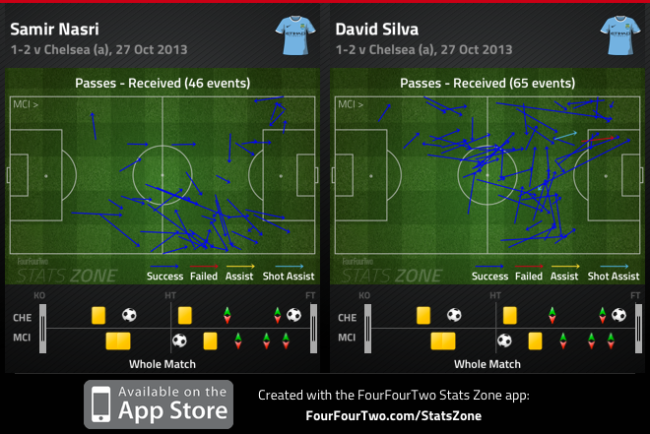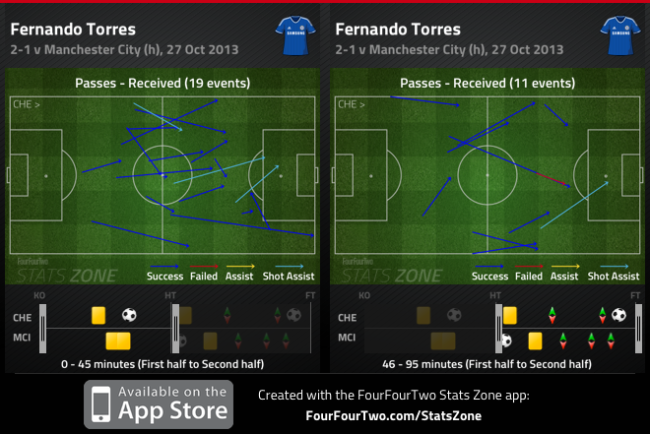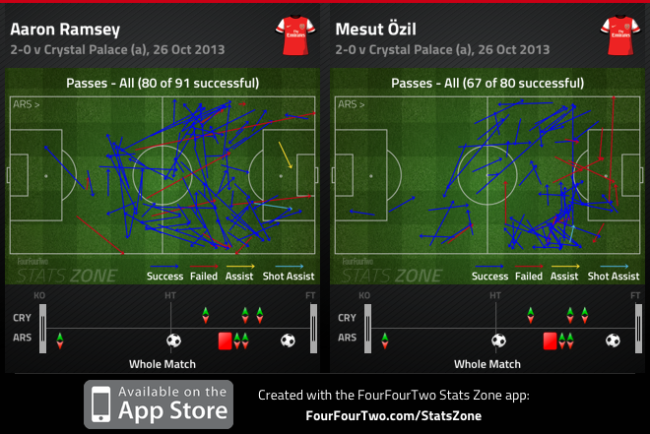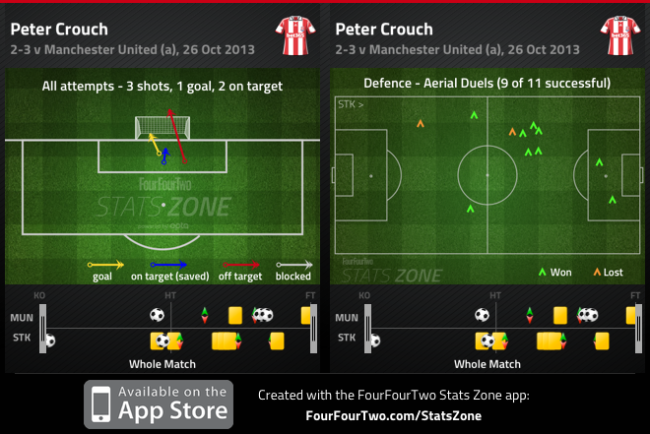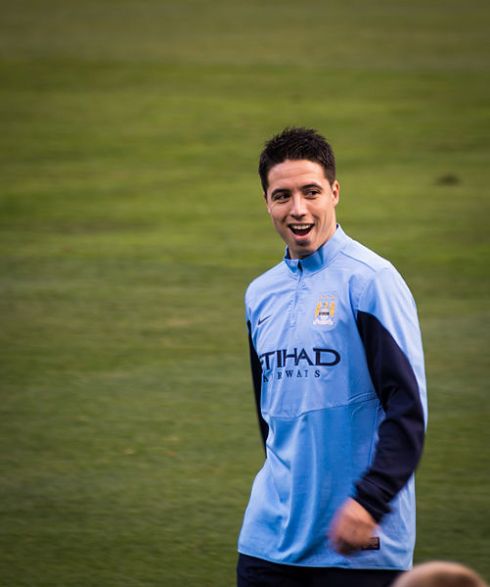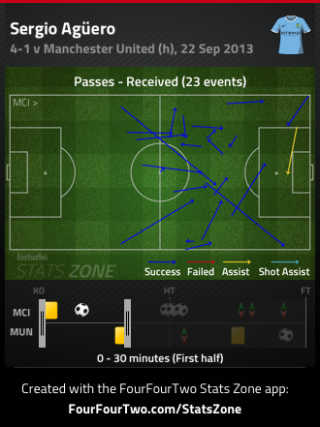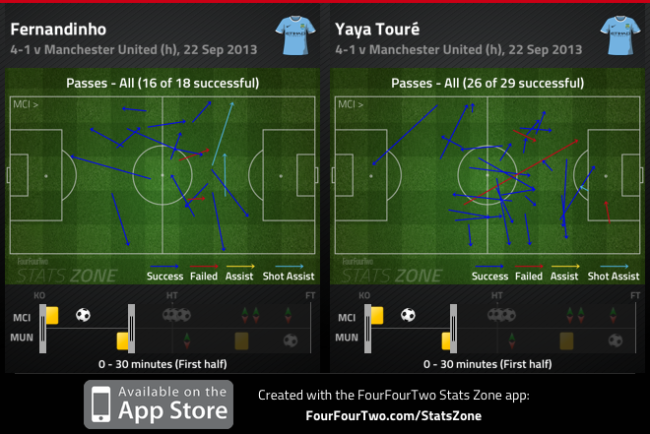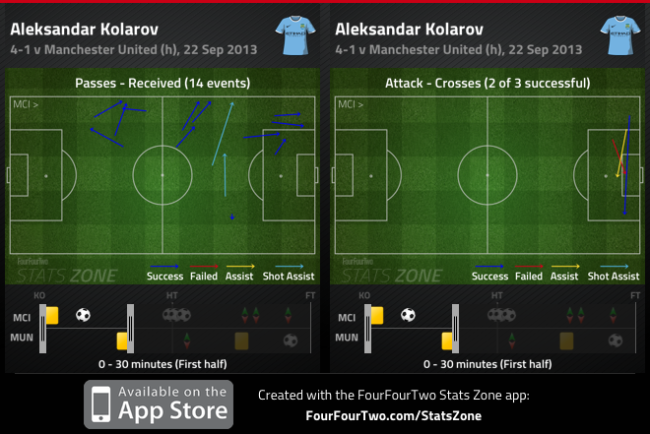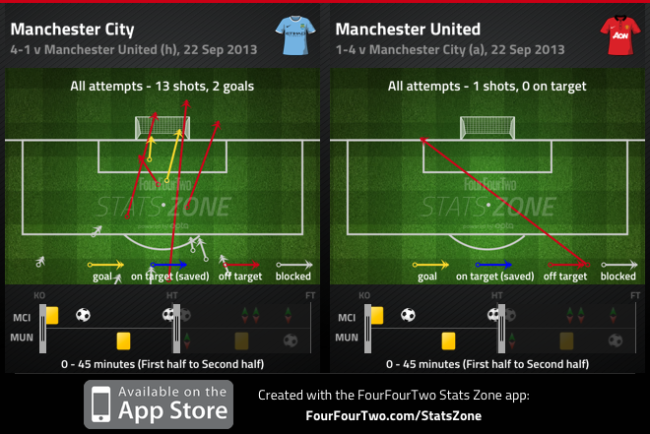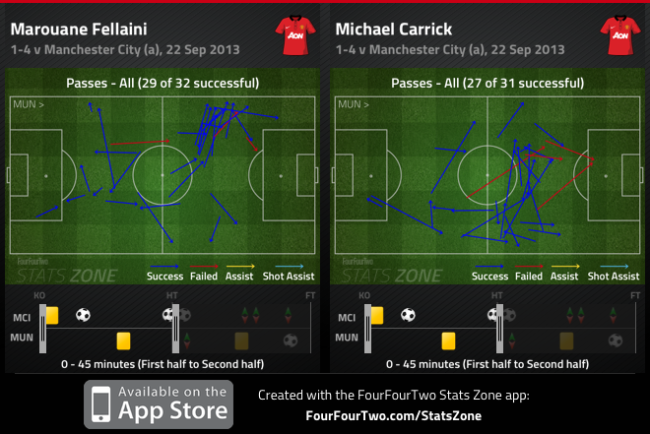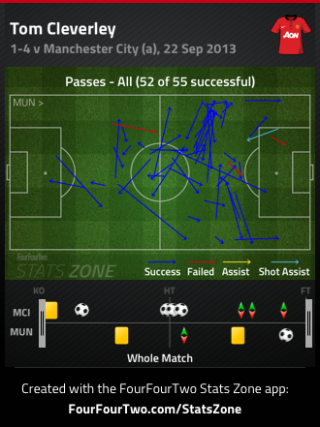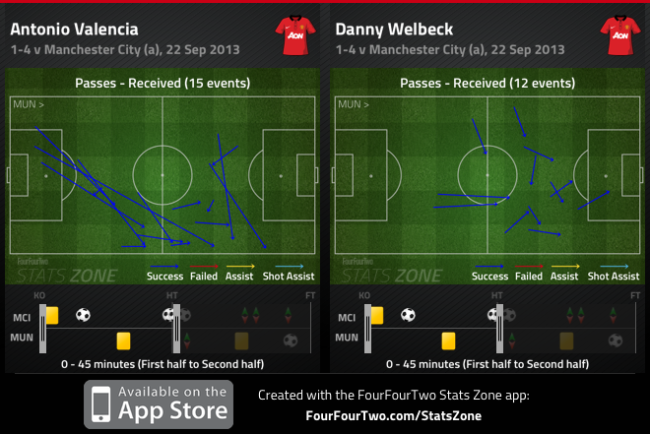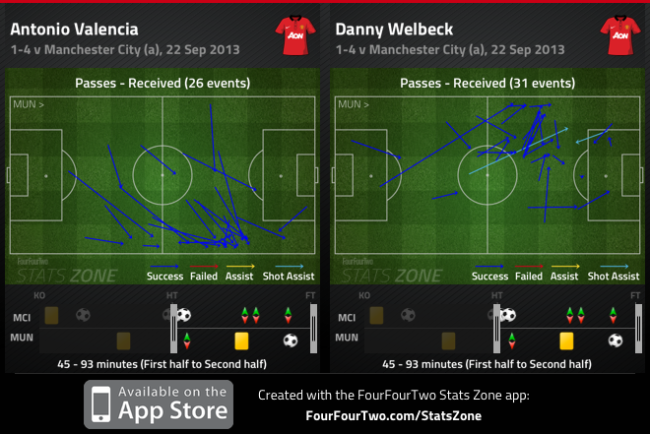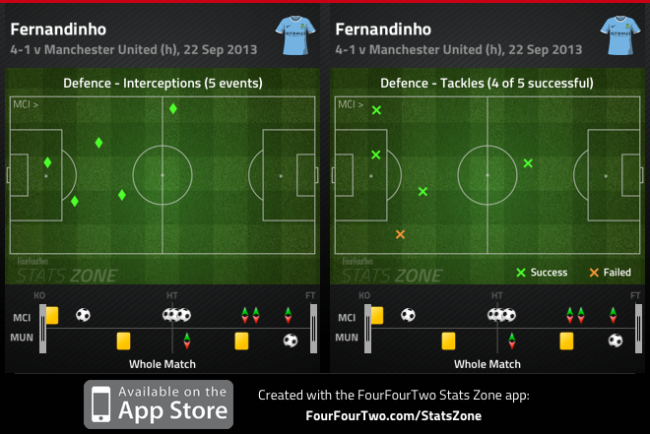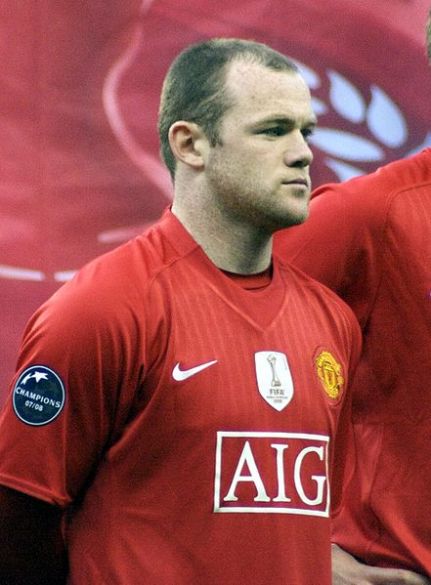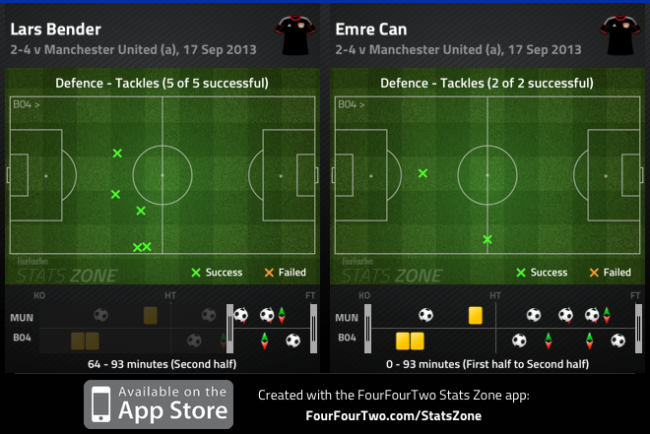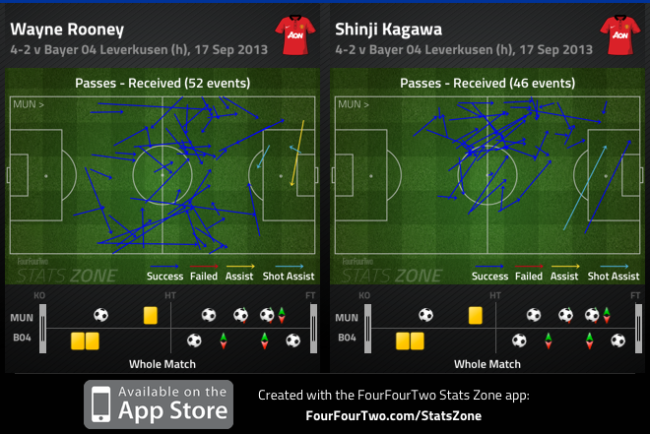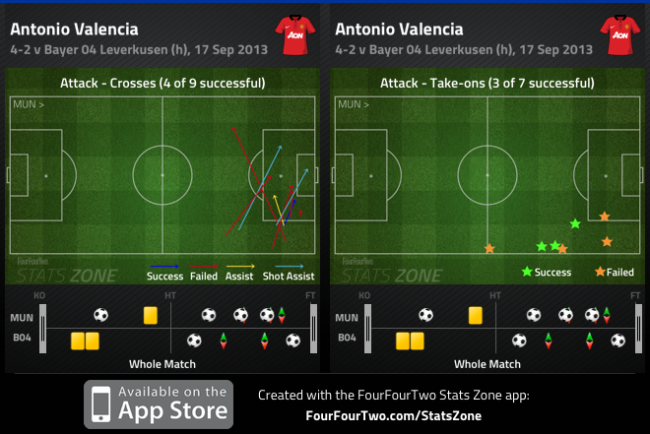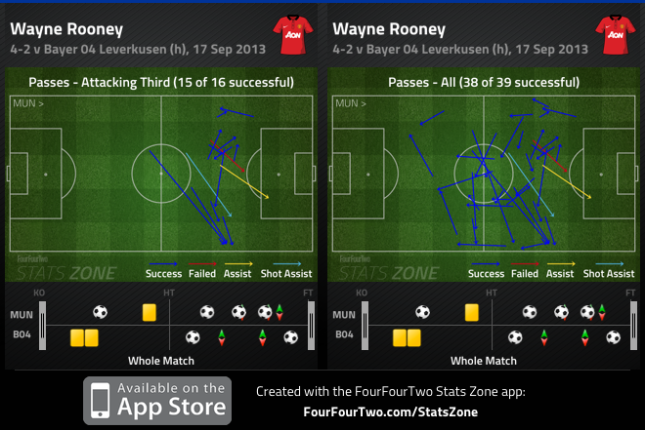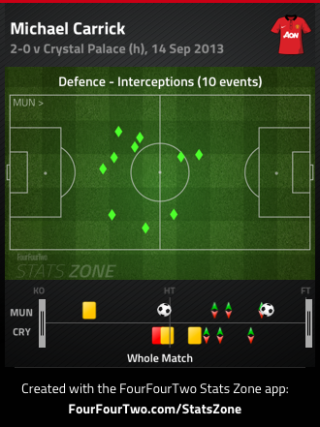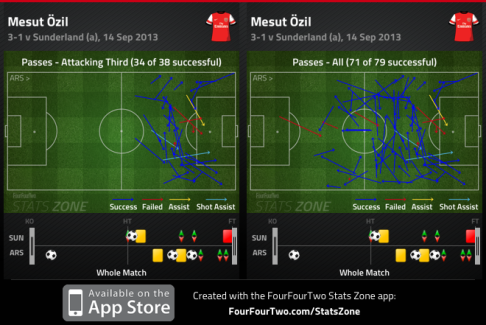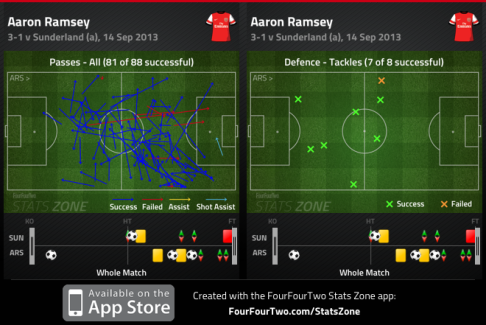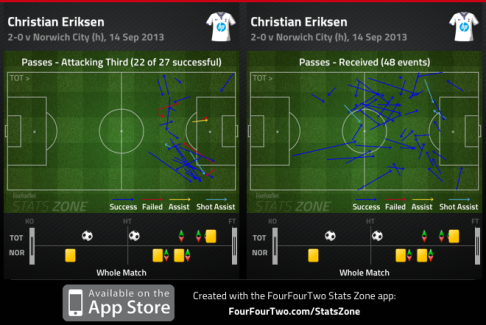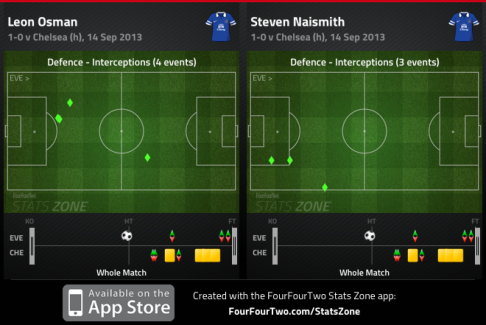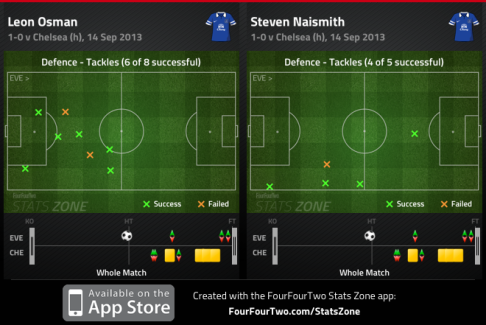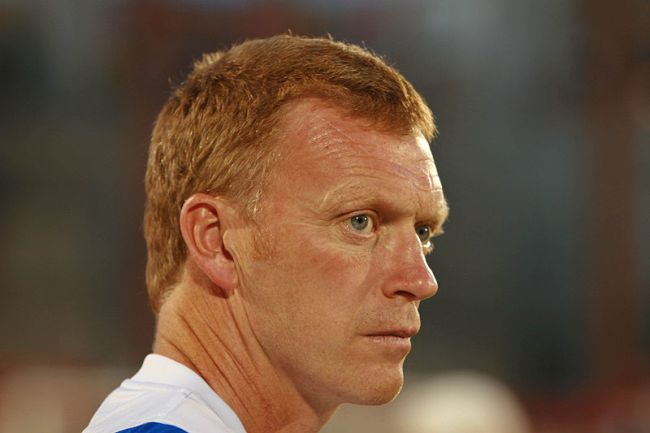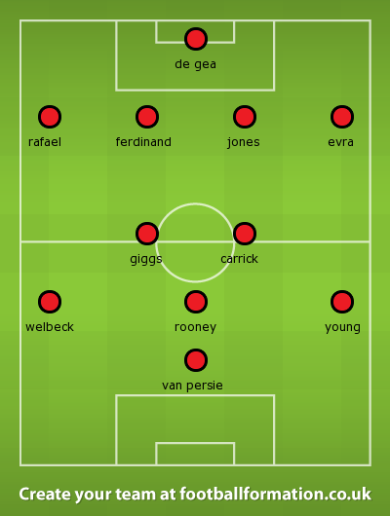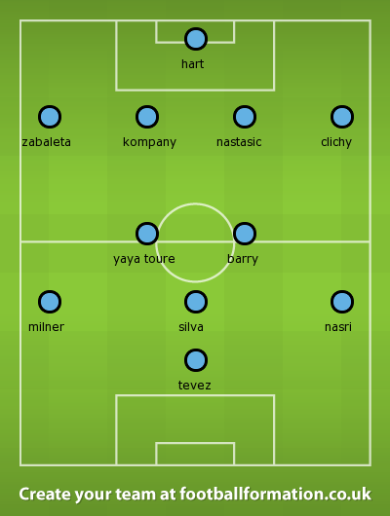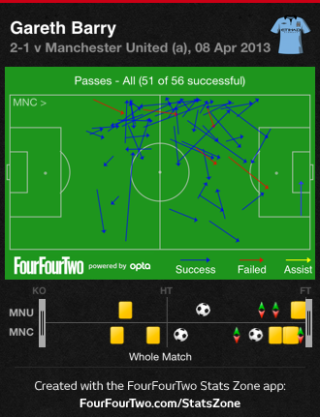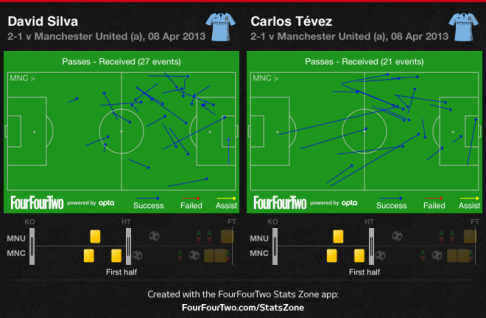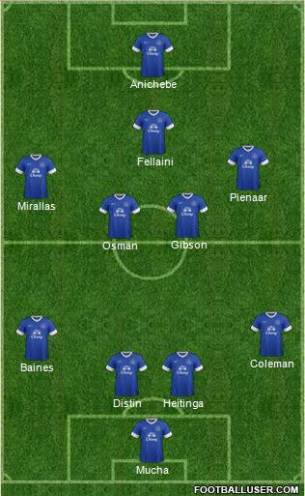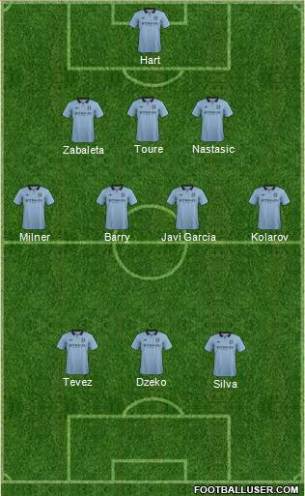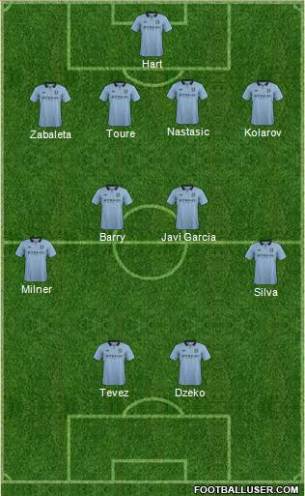Jose Mourinho and Manuel Pellegrini were under the spotlight as their new squads met at Stamford Bridge, Sunday afternoon. Arguably the two legitimate favourites to contend for the title in May were aiming to keep pace with league leaders Arsenal, who defeated Crystal Palace at Selhurst Park.
However, Fernando Torres stole the headlines from both managers, as he produced his best performance this season – including the match-winner at the death. In particular, Torres thrived in the first half, due to City’s poor shape without the ball. It was evident that they would drop into two banks of four, but Pellegrini’s men left gaps between the lines and around the final third for Chelsea’s attackers to exploit.
Torres dropped deeper to link play and he was allowed time and space to receive the ball between the lines and then turned to run at defenders. One of the issues the Spaniard has faced during his spell at Chelsea has been adapting to the football philosophy at Stamford Bridge. At Liverpool, Torres enjoyed space between the lines and his pace terrified defenders – this is a key feat that Mourinho is trying to implement in Chelsea’s style of play.
Nevertheless, Mourinho’s men benefitted from the space available – specifically on the right – and it started with Oscar delivering a great ball to an unmarked Gary Cahill, but the English defender skied his shot over the bar. In the 28th minute, Torres beat the offside trap, and admirably controlled Ramires’ cross from the right side, but the Spaniard also sent his shot over the bar.
It was a shocking miss, and a familiar scenario, leaving many to believe we’d witness another uninspiring performance from El Nino, but minutes later Torres won the ball and turned onto his left shoulder to mount an attack. The Chelsea striker used his pace to blitz past the poor Gael Clichy, and the Spaniard delivered a great ball for Andre Schurrle to tap in.
Manchester City did enjoy a few decent spells in the first half, as their aim was to sustain possession and get their fullbacks forward to provide width. Fernandinho and Javi Garcia sat deeper to protect the back four, and although Garcia was poor, Fernandinho was continuously winning tackles and aiming to provide a direct approach to City’s game. Oscar was handed the role of pressing the deepest midfielder, but both midfielders sitting deeper was beneficial to City as they always had passing option going forward.
City started the second half in fine fashion, when Samir Nasri played a lovely through ball to Sergio Aguero. Aguero did well to sneak behind Cahill and John Terry, and the Argentinian striker fired a sensational shot past Cech to equalize. Pellegrini’s men vastly improved in the second half, as Nasri and Silva pulled the strings.
Similar to the first half, Nasri and Silva dropped deeper into midfield to sustain possession, as they patiently waited for openings. The main difference was the tempo, precision and the penetration in their passing. Pellegrini’s men began to play more incisive passes into the box, forcing Cech to make a few key saves.
Also, City’s shape without the ball in the second half improved – gaps were limited as Pellegrini ordered his men to maintain a compact shape. Torres wasn’t allowed to receive the ball freely, or penetrate space between lines.
Furthermore, Chelsea didn’t attempt to push for a victory, as their substitutions were strictly player swaps – with Samuel Eto’o’s introduction being Mourinho’s sign of attacking intent without risking the balance of his side. Pellegrini introduced Aleksandar Kolarov, Alvaro Negredo and Jesus Navas to give City a direct threat, but City was unable to find another significant opening.
Conclusively, Chelsea won the match in a bizarre manner. A simple long ball over the top provided miscommunication between Joe Hart and Matija Nastasic, allowing Torres to run past the latter and tap the ball into the net. The goal highlighted a significant issue City suffered throughout the match, as they were unable to cope with balls over the top.
City packed the midfield to avoid being blitzed on the counter, but it was also to sustain possession when attacking. However, City succeeded when they played a more direct style of football in the opening 15 minutes of the second half. On the other hand, Chelsea focused on attacking on the counter, but with City aiming to sustain possession, they left gaps of space available when they pushed higher up the pitch.
“When everybody was expecting a draw, even ourselves, I tried to play Samuel and give a bit more but I didn’t want to risk too much. It was the kind of game that you wanted to win but you didn’t want to lose, because if you lose it you lose points against a title contender, so I wanted to take a risk but with balance,” Mourinho said.
Stamford Bridge erupted, Torres shined and Chelsea kept pace with league leaders Arsenal, despite encountering a difficult schedule compared to majority of their title rivals. Although Chelsea didn’t play well, results of this magnitude can tilt the balance of the title race in May.
Analysis
- Arsenal faced adversity midway through the second half when Mikel Arteta was harshly sent off for fouling – former Gunner – Marouane Chamakh. Palace created two key chances to equalize when Joel Ward received Kagisho Dikgacoi’s wall pass and smashed a scintillating shot, which Wojciech Szczesny deflected off the crossbar. Off the initial corner kick, Szczesny failed to clear his lines and Mile Jedinak forced the Arsenal goalkeeper to make a phenomenal save.
Prior to Arteta’s dismissal, Arsenal continued to overload central areas and patiently waited for openings. Ramsey took the initiative to surge forward and join the attack, while Arteta sat deep. While Arsenal was in full control of possession, it took a silly Adlene Guedioura challenge on substitute Serge Gnabry to hand Arteta a penalty, giving the Gunners the lead. Giroud added the second goal to secure all three points, nodding in Ramsey’s cross, after the Welshman did well to hold the ball up. Arsenal remains top of the table, and now have their eyes set on a showdown against Liverpool, next week.
- Manchester United mounted a late second half comeback to survive a shocking defeat against Stoke City. Wayne Rooney and Javier Hernandez were on the score sheet, as United scored twice in two minutes to earn all three points. However, United struggled for large portions of the match to assert their dominance on the match. Mark Hughes’ men targeted the space behind Chris Smalling and created a few legitimate goal-scoring opportunities. Peter Crouch’s first goal came through Erik Pieters’ cross on the left flank. 11 minutes later, Marko Arnautovic beat Smalling, and delivered a cross to Jonathan Walters who nodded the ball to Crouch, who flashed his shot over the bar.
Crouch was the main cog in attack, and the dismal performance from United’s entire backline contributed to Stoke’s threat in the final third. Meanwhile, United’s issue was down to their narrow shape in attack. It took the introduction of Adnan Januzaj to lift United’s energy. His direct penetrating runs, and will to be on the ball gave Moyes’ men a new element of attack. Arnautovic’s departure also played a key role, as Marc Wilson didn’t offer any attacking threat going forward. Moyes introduced Hernandez and Antonio Valencia to increase the Red Devils’ attacking impetus – a moment of brilliance from Wayne Rooney, David De Gea’s top saves, and natural width led to their victory. United’s poor defending, along with their narrowness in attack, halted their attacking fluidity. Over the years United’s attack has relied on width, and once again it was a key component towards earning three points.
- Gus Poyet earned his first victory as Sunderland manager in the all-important Tyneside Derby. Steven Fletcher and Jozy Altidore worked exceptionally well as a strike partnership, as they dropped deep to link play and played off the shoulders of the Newcastle defence. Fletcher opened the scoring from an Adam Johnson cross – handing the Black Cats the attacking movement they’ve lacked in their opening games. Alan Pardew initially started in a 4-3-3, but the Hatem Ben Arfa experiment as centre forward miserably failed. Pardew altered his formation into a 4-4-2 and although Ben Arfa began to find more space, Loic Remy and Papiss Cisse were unable to hold up the ball and link play. More so, Poyet’s decision to introduce Fabio Borini reaped rewards, as he scored a fantastic goal to hand Sunderland their first win of the season.
- Luis Suarez and Daniel Sturridge continued to cause havoc against teams in the Premier League; this time their opponent was West Bromwich Albion, as Suarez scored a hat trick and Sturridge scored the fourth. The win leaves Liverpool two points behind league leaders Arsenal, heading into their showdown at the Emirates Stadium next weekend. Also, Roberto Soldado notched his third penalty shot of the season, which earned Tottenham three points, and sees them climb into the top four.
Results: Crystal Palace 0-2 Arsenal, Aston Villa 0-2 Everton, Manchester United 3-2 Stoke City, Norwich City 0-0 Cardiff City, Liverpool 4-1 West Brom, Southampton 2-0 Fulham, Sunderland 2-1 Newcastle, Swansea City 0-0 West Ham, Chelsea 2-1 Manchester City, Tottenham 1-0 Hull City
Weekend Stats
- Mikel Arteta’s last six Premier League goals for Arsenal have come from the penalty spot.
- Luis Suarez scored his first hat-trick for Liverpool at Anfield – all his previous three for the club had come away from home.
- Javier Hernandez scored his 12th Premier League goal as a substitute. Only Ole Gunnar Solkjaer (17) has more substitute goals for Manchester United.
- Chelsea win opening five Premier League home matches for the third time (2009/10 & 2010/11). They are unbeaten in all 65 Premier League home matches under Jose Mourinho (W51-D14)
- Peter Crouch has yet to win a Premier League match against Manchester United: 17 previous matches, W0-D4-L13.
- Arsenal will be leading Premier League after nine matches for first time since 2007/08. They finished 3rd that season.
Infostrada Sports @InfostradaLive provides all the stats available

